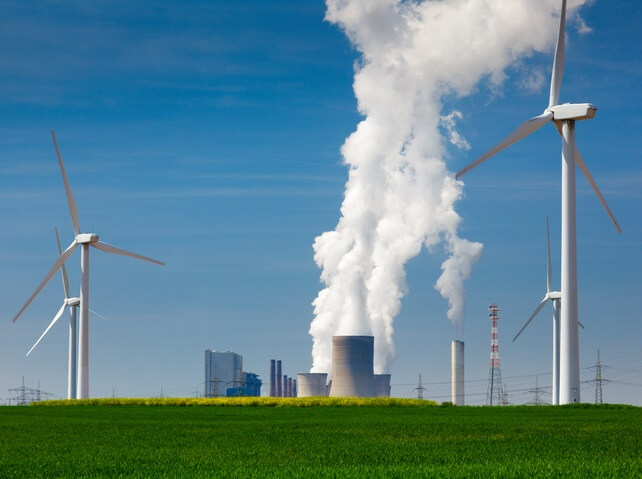Today, the U.S. Environmental Protection Agency (EPA) is in coal country to hold a public hearing on the proposed repeal of the Clean Power Plan (CPP), the Obama administration’s landmark climate change initiative that EPA Administrator Scott Pruitt recently proposed to terminate.
The public hearing is being held Tuesday and Wednesday in Charleston, W. Va., what Pruitt calls “the heart of coal country,” where the agency will be able to “hear from those most impacted by the CPP and get their comments on the proposed Repeal Rule,” he says, adding that the EPA “looks forward to hearing from all interested stakeholders.”
Coal miners ready to oppose the Clean Power Plan at today’s hearing in West Virginia! #countoncoal #energy #economy #NoCostlyPowerPlan pic.twitter.com/xtXRisAUVO
— Count on Coal (@countoncoal) November 28, 2017
The CPP – which has already been met with its share of opposition and lawsuits since it was rolled out in 2015 – calls for reducing carbon emissions from the U.S. power sector 32% below 2005 levels by 2030. To do so, the plan calls for, among other initiatives, phasing out coal plants with clean energy sources such as wind and solar.
In March, President Donald Trump told the EPA to “suspend, revise or rescind four actions related to the Clean Power Plan that would stifle the American energy industry.” Citing the National Mining Association, for example, the White House said the CPP would decrease coal production by 242 million tons. In October, the EPA then issued a notice of proposed rulemaking to repeal the initiative. The agency claimed the CPP was “premised on a novel and expansive view of agency authority that the Trump administration now proposes to determine is inconsistent with the Clean Air Act.”
The hearing will convene each day at 9:00 a.m. and conclude at 5:00 p.m. The live EPA hearings can be watched here.
According to the EPA, oral comments and supporting information presented at the public hearing will be considered with the same weight as written statements and supporting information submitted during the public comment period of the proposed repeal. Written comments must be received by the last day of the comment period, which has been extended to Jan. 16, 2018. Comments should be identified by Docket ID No. EPA-HQ-OAR-2017-0355 and may be submitted by one of the methods listed on the “Clean Power Plan Proposed Repeal: How to Comment” web page.
In support of the CPP, the Sierra Club is heading to Charleston to hold a hearing of its own today. Entitled “Hearing for Healthy Communities,” the event will include a press conference and panel discussion, followed by a petition delivery on Wednesday. The group says the event will lift up local Appalachian voices that support the CPP’s intent to protect the region’s air, water and climate from fossil-fuel pollution; fairly transition fossil-fuel workers to new jobs; and help grow America’s clean energy economy to create new jobs.
.@EPAScottPruitt‘s plan to repeal #CleanPowerPlan ignores the fact that clean energy is booming & we can provide a just transition for coal miners. –@LizPereraSierra #ProtectCPP pic.twitter.com/DKM8le58FV
— Sierra Club Live (@SierraClubLive) November 28, 2017
The Environmental Defense Fund (EDF) recently pointed out that the EPA, under the Obama administration, held numerous listening sessions prior to proposing the CPP, as well as held four public hearings in cities in all regions of the country after the plan was released – a stark contrast with the agency’s lack of engagement with the public under Pruitt, EDF argues. The group recently wrote a letter calling on the EPA to hold hearings in the same regionally diverse cities.
“The Clean Air Act guarantees people across our country the opportunity to present their concerns about this pollution loophole at a public hearing with EPA officials,” Tomás Carbonell, lead attorney at EDF, said in a statement. “Pruitt has rejected out of hand the requests by numerous city and state leaders urging him to hold public hearings in their communities. EPA has a responsibility under the law and under the fundamental tenets of a fair and open government to provide more public hearings so Americans across our nation have an opportunity to be heard.”




